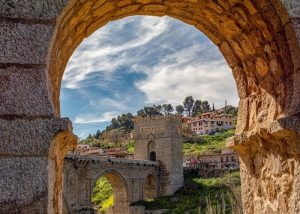CASTILE-LA MANCHA – The Castile-La Mancha sub-government has drawn up a plan to combat depopulation in rural areas. This is a problem affecting 90% of the municipalities in this region.
The board, led by Emiliano García-Page, has submitted a bill to make the sparsely populated areas more attractive. This will include tax benefits, support for companies, better education and health care facilities. The regional court will make a decision regarding this on Thursday.
Castile-La Mancha is not the only Spanish region with a depopulation problem. But with 30% of the 2million inhabitants spread over 92% of the municipalities, the demographic challenge here is significant. With 118 proposed measures, the regional board wants to meet this challenge in the near future.
Education and medical care must be accessible
For example, educational facilities must be provided in all villages where at least four children of primary school age live. Primary care centres must also be established in every rural zone making basic health care accessible to everyone. Also proposed is to reduce income tax by 25% and a contribution of 10% when purchasing a home or renovating.
Tax benefit and extra support for companies
To stimulate local economy, the regional board wants to give 40% more support to independent entrepreneurs and companies that set up in rural areas. The Retorno del Talento Interno (Recovery of Talent) program aims to persuade talented residents who have left the countryside to return to it. As a result, access to a fibre optic network and 5G is guaranteed throughout the region.
Criticism of the proposed Castile-La Mancha plan
However, not everyone is happy with the proposed Castile-La Mancha plan. Criticism came from organisations that have united on the Plataforma de la España Vaciada. They have also been devising ways to combat the exodus in rural areas for years. For example, organisation La Otra Guadalajara believes that actual demographic change goes further than the submission of a bill. As far as this organisation is concerned, the plan has not been worked out concretely enough. And, moreover, the definition of ‘sparsely populated area’ is questioned.
The collective also criticises the fact that the province of Guadalajara has been overlooked in the allocation of a contribution from the European Emergency Fund for regional aid to sparsely populated provinces. For example, the respective regional presidents of the provinces of Teruel, Soria and Cuenca have ensured that they are eligible for this.
President Emiliano García-Page of Castile-La Mancha, Javier Lambán of Aragón and Afonso Fernández Mañueco of Castile and León have now met twice to discuss the depopulation problem together. Next week, the three regional presidents will discuss this topic again.



